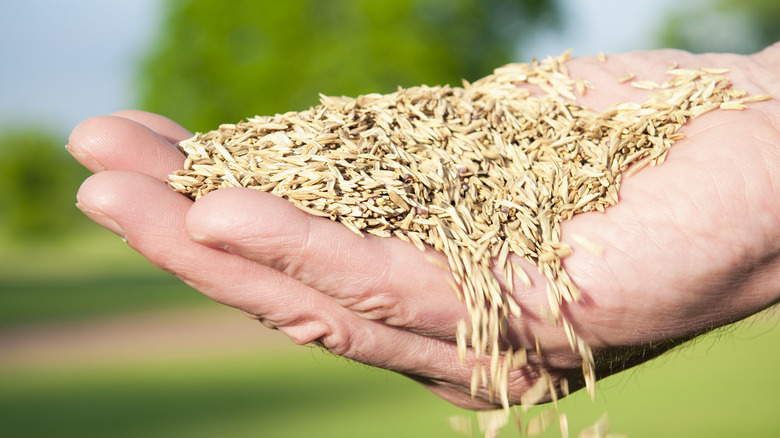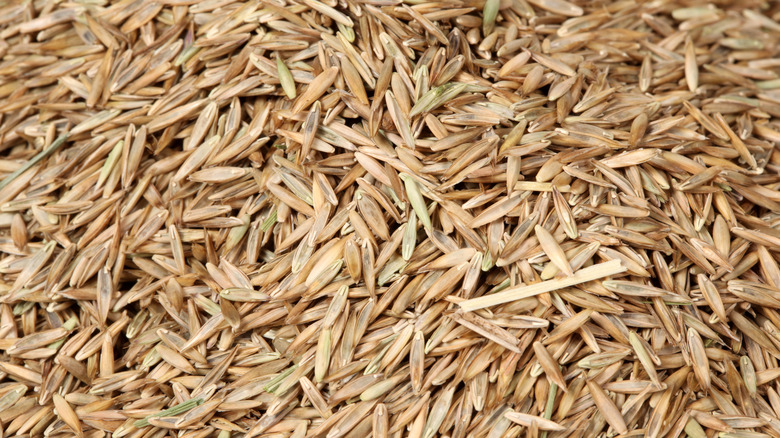What To Consider When Choosing Grass Seed To Ensure A Healthy Lawn
When cultivating a lush lawn, one of the first and perhaps the most critical decisions you'll make is selecting the right grass seed. This choice is far from straightforward, requiring a deep dive into several factors, including your regional climate, soil type, and the amount of foot traffic your lawn receives. Luckily, the market offers a variety of grass seeds, including those for different weather conditions, which could be pivotal in ensuring the longevity and resilience of your lawn. Grasses are typically divided into two main categories: cool-season and warm-season, with each group thriving in distinct climate zones. Cool-season grasses, for example, are at their best in the northern regions of the USDA zones, where the temperatures remain moderate, offering a bright, green appearance even in the cooler months. On the flip side, warm-season grasses are perfectly suited to the southern USDA zones, where the warmth is more intense and prolonged.
Shade levels in your yard cannot be overlooked. The success of grass seed germination and subsequent growth largely depends on its alignment with the garden's natural lighting conditions. Grass seeds vary significantly in their sunlight requirements, with certain varieties needing full exposure to sunlight to perform photosynthesis effectively and develop into a healthy lawn. In contrast, other types of grass are capable of thriving in partial or full shade, utilizing the available light for photosynthesis more efficiently.
Other factors to consider
Besides climate, the choice of grass seed is intricately linked to a few other growing factors, such as soil type. Different grass varieties have distinct preferences for soil pH and nutrient levels. For example, while some grasses may thrive in loamy soils, others might require sandy or clay soils to flourish. Grass that matches your garden's unique environmental conditions is more likely to withstand adverse weather, resist diseases, and maintain its vigor throughout the changing seasons. This compatibility means your lawn can thrive with less intervention, reducing the need for chemical treatments and intensive care. Therefore, before choosing your grass seed, try to conduct a soil test to understand your soil's pH and nutrient composition.
Foot traffic is another essential consideration. If your lawn is frequently used for activities or by pets, you need hardy grass varieties that can recover quickly from wear and tear. Similarly, the size of your lawn impacts both the type of seed and the quantity needed. Larger areas may benefit from turfgrass seeds, which are cost-effective for covering expansive spaces and can establish a healthy lawn efficiently. Lastly, it's essential to realistically assess the amount of work you are willing to invest in lawn maintenance. Some grass types are low-maintenance; choosing the right one significantly reduces the necessity for constant care while still guaranteeing a healthy and attractive garden.
Types of grass seeds
Let's explore the variety of grass seeds available. Starting with cool-season grasses, Kentucky bluegrass is particularly suited for temperate climates due to its fine texture and rich green color. It demands high maintenance but rewards with a dense, carpet-like appearance, demonstrating resilience through cold winters and recovery from dormancy. Perennial ryegrass is appreciated for its quick germination and durability under foot traffic, making it an excellent option for overseeding and sports fields. This species thrives in cool, moist climates, offering a texture that ranges from fine to medium, meeting the needs of high-usage areas efficiently. Within the fine fescue family, varieties such as creeping red fescue are notable for their shade tolerance and minimal maintenance requirements. These types are well-adapted to cooler climates and less fertile soils, making them a versatile choice for challenging garden spots.
Turning to warm-season grasses, Bermudagrass stands out for its durability and drought resistance. It is preferred in southern climates as it's a grass that withstands high temperatures and intensive use, making it ideal for sports fields and sunny lawns. Zoysiagrass, known for its dense growth and adaptability to shade and heat, creates a lush, green lawn resistant to weeds and disease. It is particularly suitable for warmer climates, where it can endure moderate foot traffic without significant wear. St. Augustine grass excels in warm, coastal areas, offering high shade and salt tolerance. This variety produces a thick, vibrant lawn throughout most of the year, catering to environments with specific challenges.


